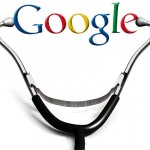 A number of studies over the years have highlighted our growing propensity to head online to hunt for information about our health. Indeed, one recent paper found that over 80 percent of teenagers rely on ‘Dr Google’ for their health information.
A number of studies over the years have highlighted our growing propensity to head online to hunt for information about our health. Indeed, one recent paper found that over 80 percent of teenagers rely on ‘Dr Google’ for their health information.
Whilst this general empowerment of patients is probably a good thing, it isn’t without risks. Indeed, a campaign was launched late last year in Belgium to stop people asking Dr Google about their symptoms and to contact professionals instead.
The accuracy of online symptom checkers
A recent study wanted to put the various online symptom checkers through their paces to see just how accurate they are. The diagnosis is sadly not a positive one, with many online services giving out an incorrect diagnosis, although in their defense, they were found to be broadly similar to telephone triage services.
“These tools may be useful in patients who are trying to decide whether they should get to a doctor quickly, but in may cases, users should be cautious and not take the information they receive from online symptom checkers as gospel,” the authors say.
I’m sure many of you are familiar with the plethora of symptom checkers that exist online. They typically utilize expert systems to guide the user through their symptoms before then providing a diagnosis and recommended next course of action.
The researchers tested various checkers against a standardized list of symptoms from 45 clinical vignettes used to teach medical students. Each of these was input into 23 different online tools, with the web apps providing a correct diagnosis just 34 percent of the time.
Good or bad advice
Of course, in many instances, the diagnosis may be less important than the recommendation offered afterwards.
“It’s not nearly as important for a patient with fever, headache, stiff neck and confusion to know whether they have meningitis or encephalitis as it is for them to know that they should get to an ER quickly,” the authors say.
In this they tended to fare a little better, providing the correct advice in 58 percent of cases, with this success rate increasing for more critical cases, up to 80 percent for emergency cases.
Playing if safe
Most of the time, it emerged that the online tools erred on the side of caution. They would provide users with an overly cautious recommendation, which whilst it perhaps does no harm, it may place an undue burden on health services.
As might be expected, a good deal of variation existed between the various tools, with few operating without flaw. For instance, those that gave the best diagnoses often then failed to recommend the most appropriate level of care afterwards.
It seems inevitable that such tools will remain part of the process patients go through when researching their symptoms, so the hope has to be that the various big data driven approaches will eventually make them more accurate.
“The tools are not likely to go away,” the authors conclude. “With symptom trackers, we’re looking at the first generation of a new technology. It’s important to continue to track their performance to see if they can reach their full potential in helping patients get the right care.”
I don't expect such services to be perfect, but if they're better than the alternative (ie phone systems) then that's good, and they're only likely to get better over time, so it's positive as far as I'm concerned.
I actually find this quite heartening, not least because I suspect the online symptom checkers are improving their diagnoses much faster than things like the phone based triage systems. I bet if we reconvene in a few years, the story won't be the same.
Yes, that's a very good point Andrea. It would be interesting to see how these values change, and indeed have changed over time.
When would this be mainstream? It seems like there's so many potential disrupters to the medical industry, but never an actual disruption for most people. I'm wondering if the industry is too set in its establishment to allow change.